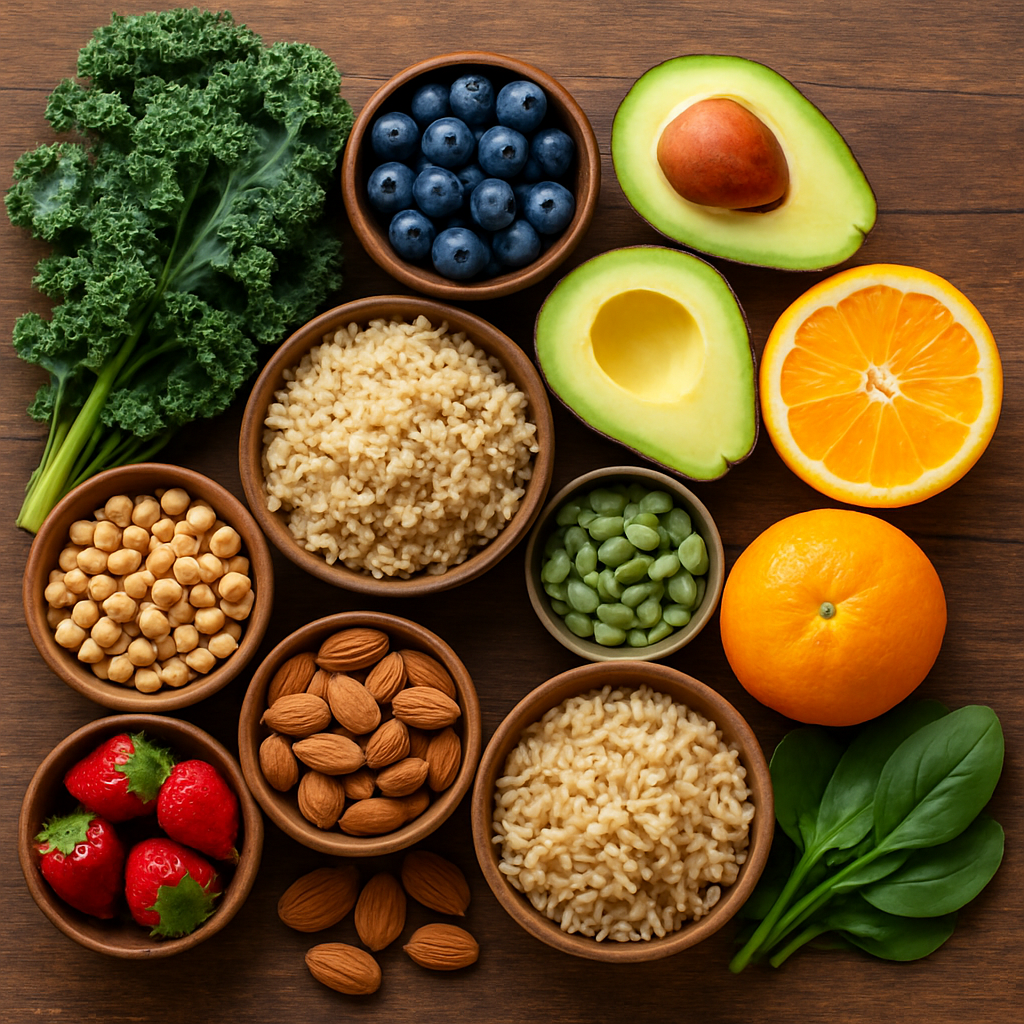
The Power of Whole Foods: Why Real Nutrition Still Wins
Share
In a world filled with fast fixes and synthetic supplements, the importance of returning to whole food nutrition is more relevant than ever. While there’s no denying the convenience of packaged options, the body thrives best on real, minimally processed food. This blog explores why whole foods remain the foundation of lasting wellness and how you can make them a bigger part of your daily routine.

What Are Whole Foods?
Whole foods are foods that are as close to their natural state as possible. They haven’t been heavily processed or altered, and they typically don’t have added sugars, preservatives, or artificial ingredients. Examples include:
- Fresh fruits and vegetables
- Whole grains like brown rice and quinoa
- Legumes such as lentils and chickpeas
- Nuts and seeds
- Unprocessed animal products (if part of your diet)
These foods are packed with essential nutrients, making them powerful allies for anyone striving for natural energy sources and a balanced body.
Why Whole Foods Still Win
1. Nutrient Density You Can Count On
Whole foods are naturally rich in vitamins, minerals, antioxidants, and fiber. Unlike processed foods that often contain empty calories, whole foods fuel your body with the nutrients it needs to thrive.
2. Better for Long-Term Health
Choosing whole foods supports your immune system, digestive health, and metabolic function. Regular intake of these foods helps promote clean eating habits that align with long-term wellness goals.
3. Natural Energy, No Crash
Processed foods often give a short energy burst followed by a crash. In contrast, whole food nutrition offers sustainable energy thanks to complex carbohydrates, healthy fats, and plant-based proteins that keep your blood sugar stable.
4. No Hidden Ingredients
When you eat whole foods, you know what you're getting. No hidden sodium. No unpronounceable chemicals. Just real, whole ingredients.
How to Add More Whole Foods to Your Life
You don’t need to overhaul your entire diet overnight. Start with simple, gradual changes:
- Swap white bread for whole grain options
- Add fresh greens to every meal
- Choose fruits for dessert
- Snack on nuts or seeds instead of chips
- Cook from scratch when possible
Even small shifts toward clean eating habits can yield noticeable improvements in your energy, digestion, and overall well-being.
Final Thoughts
While modern nutrition trends may come and go, the power of whole food nutrition stands the test of time. It’s not about perfection—it’s about making informed, nourishing choices that support your body from the inside out. Whether you're aiming for natural energy sources, better digestion, or simply a more mindful way of eating, whole foods will always be a smart place to start.
